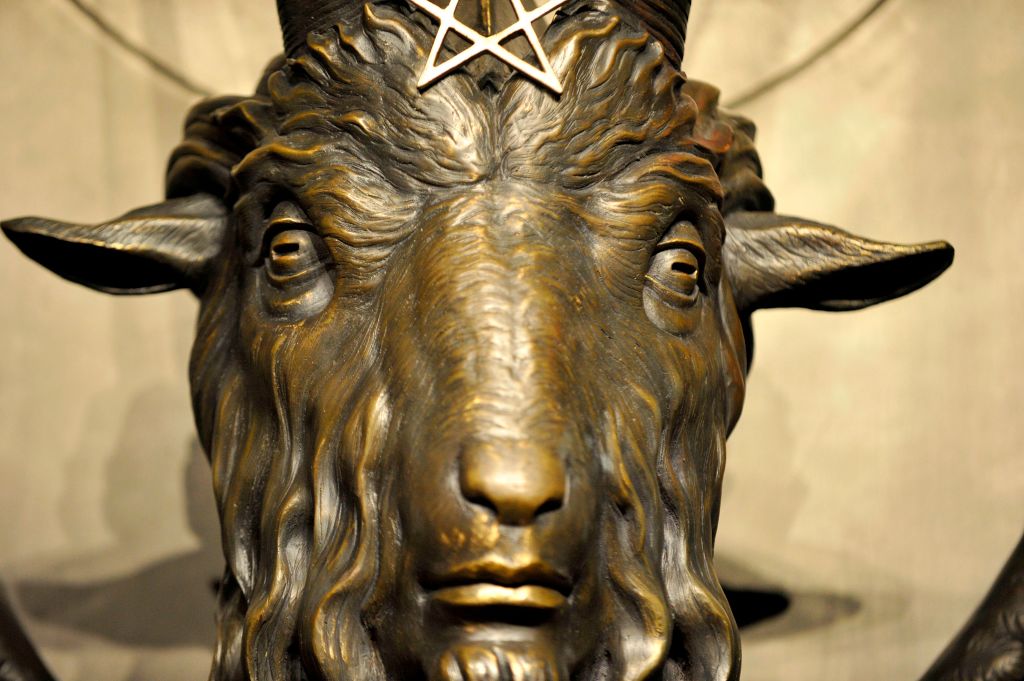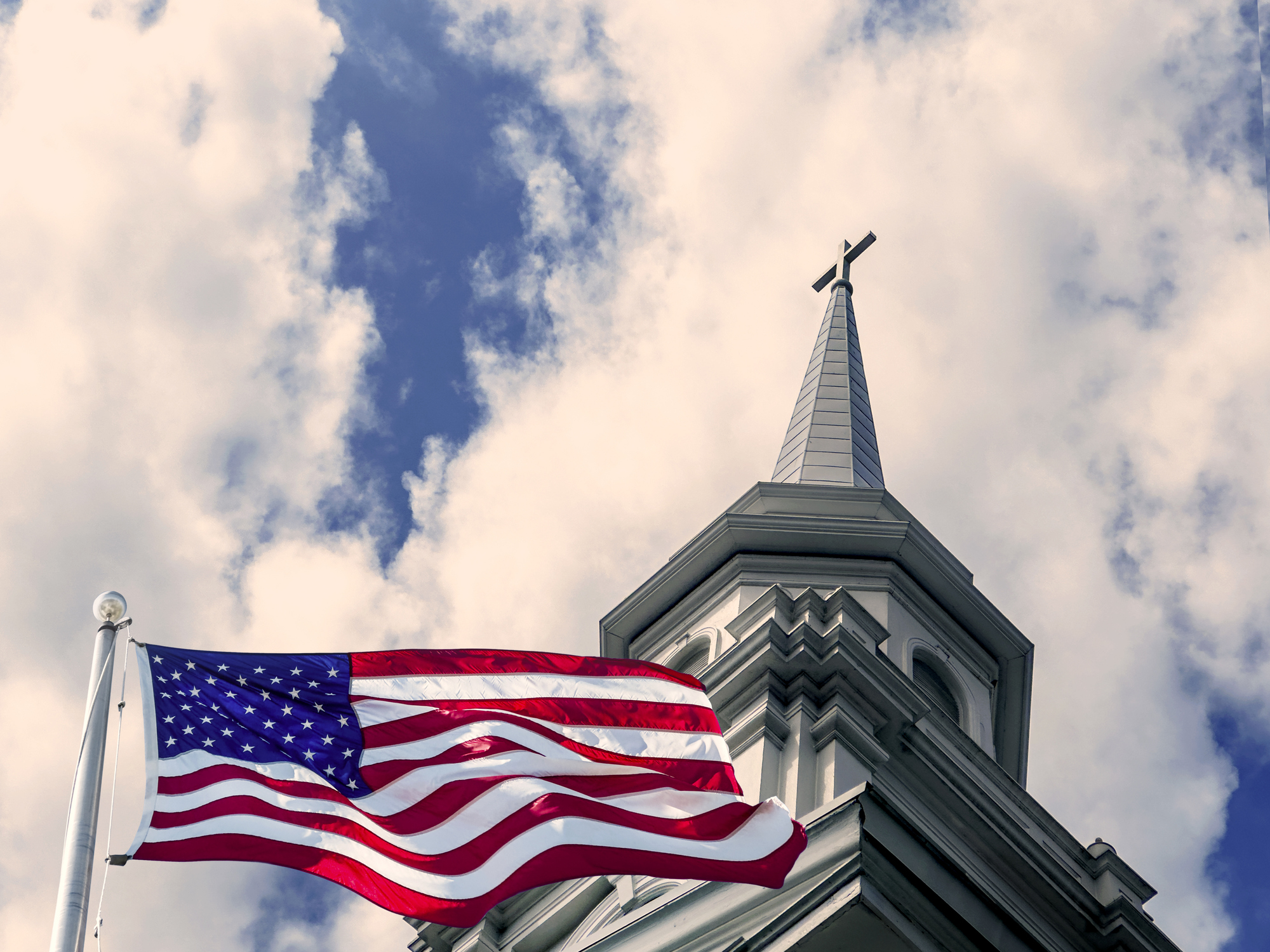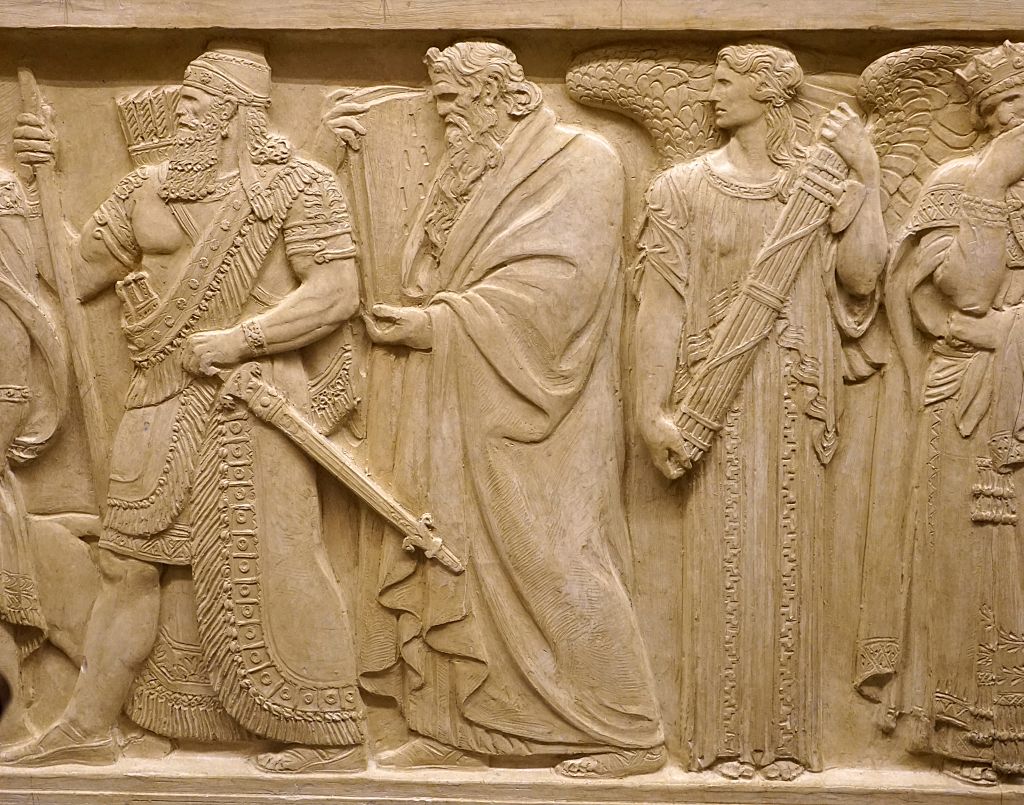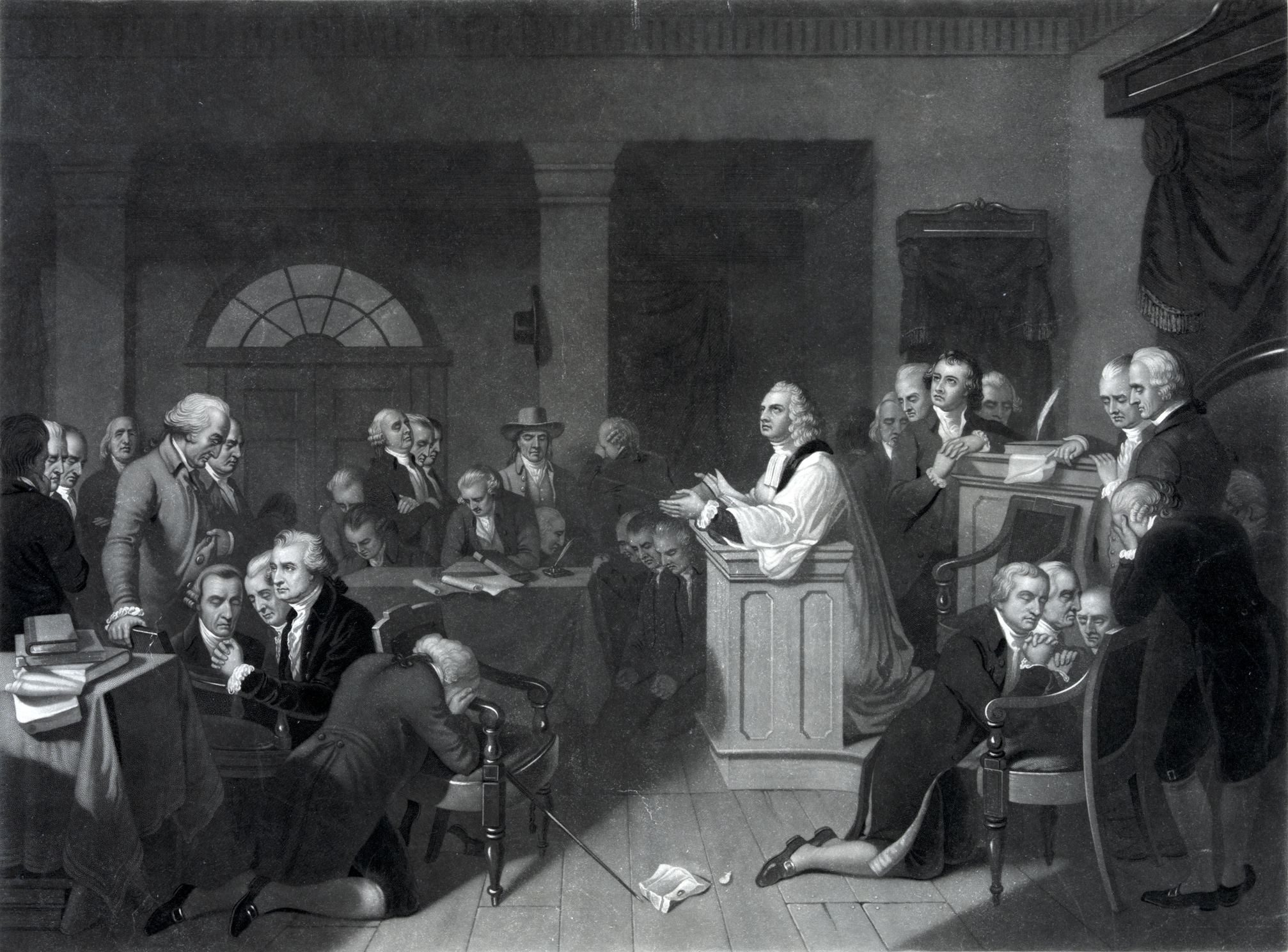Christians need to find the will to act.
Satanism and the Constitution in Iowa

Iowa's state legislature is perfectly free to bar outrageous displays.
The State of Iowa is at present experiencing the kind of controversy that one traditionally would not have expected during the Christmas season—namely, a dispute over a Satanic display in the state Capitol. The display was not the work of the legislature itself, but rather a local Satanic temple, taking advantage of the legislature’s policy permitting private groups to use certain areas of the building for their own expressive exhibits. Not surprisingly, many Christian Iowans were dismayed. Indeed, one individual was dismayed enough to take upon himself the destruction of the display and the beheading of the Luciferian statue that it featured.
Apart from the display’s sudden demise, its presence in the Capitol raised the question whether the legislature would have had the right to remove it or to have refused it in the first place. One of the most extensive statements about this matter was made on X (formerly Twitter) by Jon Dunwell, a Republican member of the Iowa House of Representatives and himself a Christian pastor. Representative Dunwell’s post suggested that he personally found the display objectionable, but was not in favor of its removal. As “an Iowan and a State Representative,” he said, “I don’t want the state evaluating and making determinations about religions. I am guided by the First Amendment of the US Constitution.”
With all due respect, Representative Dunwell is mistaken about the constitutional requirements here. Nothing in the First Amendment, properly understood, would prohibit the legislature from taking a pass on the Satanic exhibit, even if it permitted other—and more conventional, mainstream, and wholesome—religious displays.
The First Amendment bars the state from making any law or adopting any policy “prohibiting the free exercise of religion.” There is no real free exercise question here, since no religion has a free exercise right to make use of public property for the sake of religious expression. If the Satanic display had been evicted from the statehouse, the Satanists would be free to erect it elsewhere, on their own property or the property of some willing person.
But the First Amendment also includes the Establishment Clause, which prohibits the government from enacting any law or policy “respecting an establishment of religion.” On the face of it there is no problem here either, since merely excluding one controversial display would hardly tend to establish any particular state religion. Nevertheless, the Supreme Court in modern times has held that the Establishment Clause requires the government to be completely “neutral” on questions of religion. And this doctrine may be the source of Representative Dunwell’s sense that excluding the Satanic display would raise a First Amendment issue.
This neutrality doctrine, however, is not based on the original meaning of the First Amendment and is therefore not required by the Establishment Clause. Leading Founders like George Washington thought that traditional religiosity was essential to the nation’s political well-being. In his famous Farewell Address, Washington admonished his fellow citizens that “religion and morality” are the “great pillars of human happiness” and the “firmest props of the duties of men and citizens.”
Accordingly, Washington—like other, later presidents—used the office of the presidency (without controversy at the time) to promote traditional religious belief. Thus he issued (at the request of Congress) a Thanksgiving Proclamation holding that “it is the duty of all nations to acknowledge the providence of Almighty God,” and therefore encouraging all Americans to “unite in most humbly offering our prayers and supplications to the Great Lord and Ruler of Nations.”
It is impossible to believe that the generation of Americans who wrote and ratified the First Amendment would think that it permits the government to encourage traditional religiosity, on the one hand, but also requires the government to place its public buildings at the disposal of those who wish to attack traditional religion, on the other.
Some might alternatively suggest a constitutional right for the Satanists to have their display arising from the First Amendment’s prohibition on any law “abridging the freedom of speech.” But no such right is suggested by the text of the Amendment. A right to engage in free speech is not a right to use public buildings as a venue for one’s speech. The Satanists could be excluded from the Capitol and still be perfectly free to express their views elsewhere.
Once again the modern Supreme Court has muddied the waters by trying to push the First Amendment further than it was originally intended to go. Thus some might contend that the Iowa legislature would be engaging in constitutionally forbidden “viewpoint discrimination” if it let the Capitol be used for some speech displays but declined to permit others that it viewed as objectionable. Surely, however, the Court’s viewpoint discrimination doctrine has to be understood in light of common decency and common sense.
Is it reasonable to think that if the State of Iowa generally permits groups of citizens to use a space in the Capitol for their expressive displays that it must therefore permit every conceivable display, no matter how outrageous to the sensibilities of the majority of Iowans? Is it a sane constitutional principle that by allowing displays by, say, the Boy Scouts or the Baptists, the legislature must also allow displays celebrating the Ku Klux Klan, or the alleged glories of slavery, or singing the praises of Hitler and Stalin? The answer to these questions is obvious.
The Iowa legislature may not have wanted the trouble or controversy that would have come from shutting down the Satanic display in the Capitol. But nothing the Constitution of the United States would prohibit them from doing so.
The American Mind presents a range of perspectives. Views are writers’ own and do not necessarily represent those of The Claremont Institute.
The American Mind is a publication of the Claremont Institute, a non-profit 501(c)(3) organization, dedicated to restoring the principles of the American Founding to their rightful, preeminent authority in our national life. Interested in supporting our work? Gifts to the Claremont Institute are tax-deductible.
It’s far more than the latest ad hoc term for everything the regime despises.
Christian nationalism is a long overdue attempt to revive American’s political and cultural heritage.
It takes more than online wishcasting to win elections.
Some labels are just about chasing normal people out of the polite mainstream.
A time for choosing.






